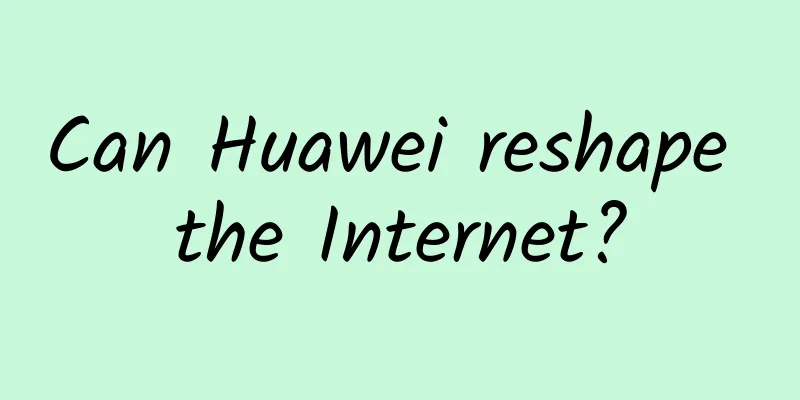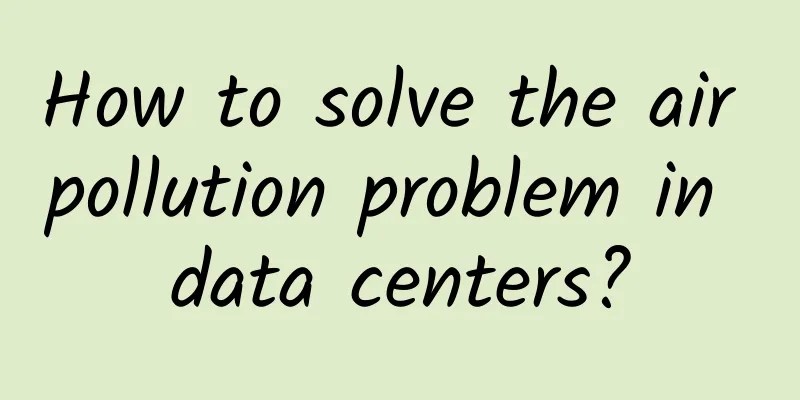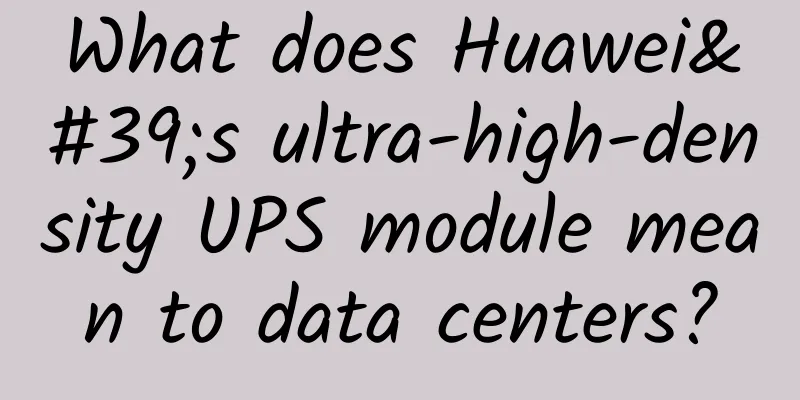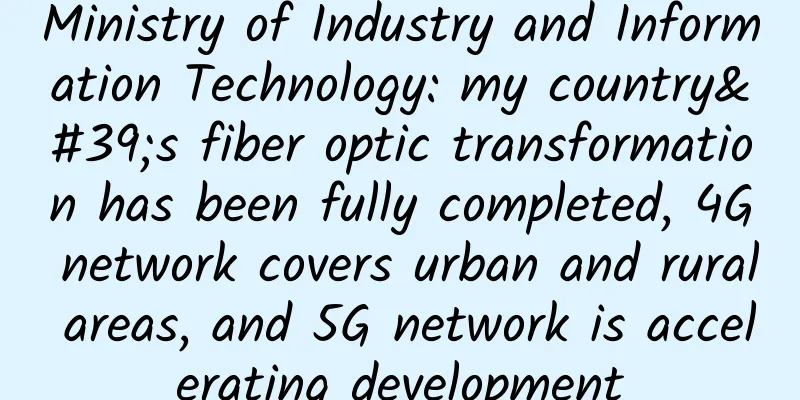Can Huawei reshape the Internet?

|
This article is reproduced from Leiphone.com. If you need to reprint it, please go to Leiphone.com official website to apply for authorization. Is it possible to break the half-century-old IP protocol and reshape the Internet? Huawei is trying. Huawei proposes New IPAccording to the Financial Times, Huawei, together with the All-China Federation of Trade Unions, China Telecom, and the Ministry of Industry and Information Technology of China, submitted a proposal called "New IP" to the International Telecommunication Union (ITU). Leifeng.com Note: The image is taken from Huawei article In the proposal article submitted by Huawei (titled "New IP framework and Protocol for Future Applications"), it was introduced that New IP is a new Internet protocol framework that can better support emerging network applications, such as multi-network and holographic communications, and will fundamentally support variable length, multi-semantic addresses and user-customized networks at the network layer. Huawei pointed out that the existing IP protocol is facing network challenges in two main aspects: first, the development of emerging applications such as AR/VR and holographic communications requires more efficient and customized networks; second, the current TCP/IP protocol and framework have limitations and complexity on the interconnection of ManyNets (including IoT networks, satellite networks, etc.). Nowadays, holographic communication meets people's demand for interactive communication experience, which also requires higher bandwidth, lower latency, and more flexible network processing. To meet these sensing application requirements, more sophisticated network service capabilities are needed. Due to the incompatible addressing mechanisms of existing IP, the interconnection between IoT networks, cellular networks, industrial networks, etc. is limited. The subsequent introduction of multiple mapping mechanisms not only brings additional complexity to the system, but also brings potential privacy and resilience issues. Therefore, a better solution is needed to handle the delivery and communication of all types or virtual objects, and New IP came into being. The article points out that New IP has three key characteristics:
Leifeng.com (Official Account: Leifeng.com) Note: Image source: Huawei article This article takes smart home as an example to describe the application scenarios under the new IP network:
It is not difficult to see that in this scenario, the new IP has two advantages over the traditional IP: first, the smart home network uses a short address space for batch communication, which reduces packet overhead and improves communication efficiency; second, the flexibility of the new IP enables address segmentation and simplifies the design of border routers, and the border routers do not need to maintain address mapping instructions. Currently, New IP network architecture technology is under construction and will begin testing in 2021. Will New IP bring about monopoly?Just as all new things often arouse people's doubts and misunderstandings in the early stages of their birth, New IP is also in such a dilemma. Saudi Arabia, Iran, Russia and other countries have expressed support for Huawei's New IP proposal. However, some scholars have doubts about this "new thing", mainly in two aspects: The first is about absolute control. Shoshana Zuboff, a social scientist at Harvard University, believes that Huawei proposed the new IP in order to give them absolute political control through technical infrastructure; The second is about security and human rights. Cybersecurity company Oxford Information Labs believes that although New IP can provide fine-grained control over the network infrastructure, changes in network protocols may lead to more centralized, top-down control by the government over the Internet and its users, which will have an impact on security and human rights. Huawei explained that the development of New IP is only to meet the technical requirements of the rapidly developing digital world, and no control mechanism is built into the design. At the same time, Huawei also pointed out that the research and innovation of New IP is open to scientists and engineers around the world, who can participate and contribute to it. In addition, regarding security concerns, Huawei said that the architecture will have a "shutdown command" function that allows a central point to disconnect a specific signal source. In addition to doubts about New IP, there are also views that fundamentally deny New IP. Alissa Cooper, chairman of the Internet Engineering Task Force (IETF), said that the development of the Internet is achieved through modular and weakly coupled building blocks, which is the excellence of the Internet. Even in a fast-scanning world, the existing IP protocol is applicable. At the IETF meeting in November 2019, a Huawei spokesperson responded:
Whether the IP is changed or not is not only a matter for the top personnel, but the users are the ones who are most affected by the interests behind it. On the foreign discussion forum Reddit, netizens also gave their own opinions. Leifeng.com Note: The picture is from Reddit User Cookie_Dodger believes that "data is data, and all data sources should be treated equally, even though net neutrality is dead... ordinary people care about how fast the service is, how useful it is, and whether it is affordable." Regarding "(Huawei's proposal to reshape the Internet may affect) network neutrality", Cookie_Dodger added:
As early as 2014, scholar Laura DeNardis wrote in her book that conflicts over Internet governance are a new space for the deployment of political and economic power in the 21st century. It now seems that the language game among various countries due to the emergence of the New IP plan has just confirmed this point of view. |
<<: Who will save the grassroots employees of operators who are almost unable to bear it?
>>: Vinton Cerf, the 'Father of the Internet', Infected with Coronavirus
Recommend
6G: Everything you want to know is here!
2019 has become the first year of 5G. South Korea...
What are the characteristics of APC fiber optic connectors?
Fiber optic connectors are mainly composed of two...
RackNerd "Memorial Day" Sale: Los Angeles VPS from $14.99 per year
RackNerd has launched a Memorial Day promotion, w...
BudgetVM: 1Gbps unlimited traffic server starting from $84/month, 10-100Gbps bandwidth options, US/Japan data centers
BudgetVM is a foreign hosting company that has be...
Working principles of physical layer/data link layer/network layer
[[279942]] Physical Layer Physical layer equipmen...
DesiVPS: Los Angeles/Netherlands VPS, $20 per year, 6 free IP changes per year
DesiVPS is a foreign VPS hosting company headquar...
The Ministry of Industry and Information Technology revised the project plan for industry standards such as artificial intelligence
According to the overall arrangement for the form...
How to make the audit of data center assets more efficient?
Everyone has their responsibilities, but what to ...
A thought-provoking report on a major communications failure
Starting at 1:35 a.m. local time on July 2, a lar...
CloudCone: $69/month-E3-1270v2, 32G memory, 512G SSD, 100M/1Gbps bandwidth, Los Angeles MC data center
We often share information about VPS hosts provid...
[6.18] Megalayer flash sale: Hong Kong independent server starts from 199 yuan/month, high-defense server starts from 299 yuan/month
At the beginning of the month, we shared Megalaye...
Which open source API gateway is better?
[[412862]] Image from Baotu.com Today I will disc...
5G will become the golden key to open the era of the Internet of Things
The Internet of Things is not new. At the beginni...
HTTP History - From HTTP/1 to HTTP/3
Birth When talking about http, we must first unde...
What happens when SDN meets 5G?
SDN is a profound change to traditional IP networ...









